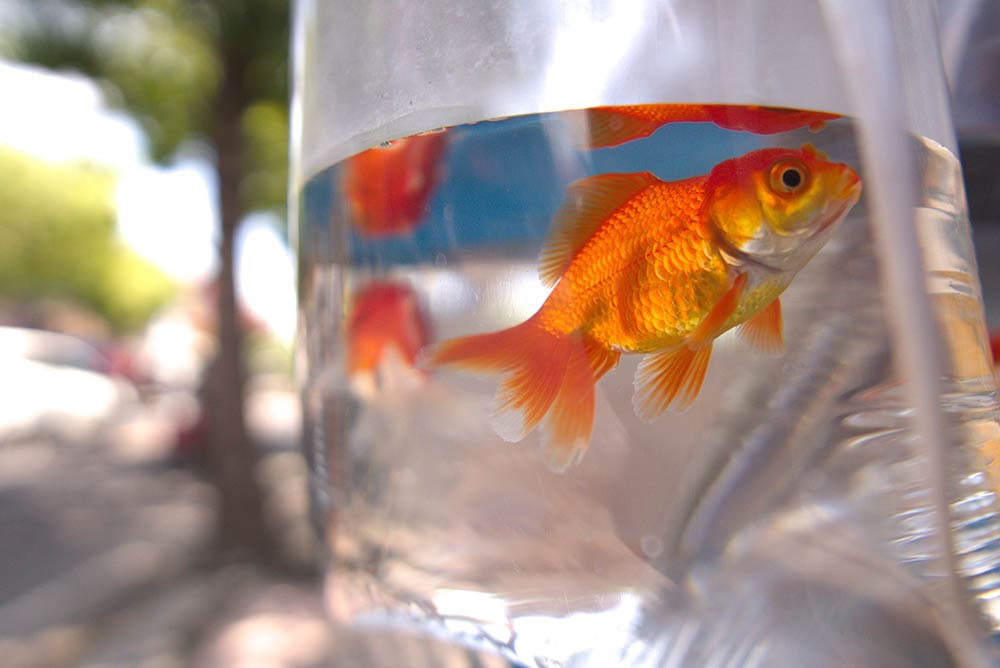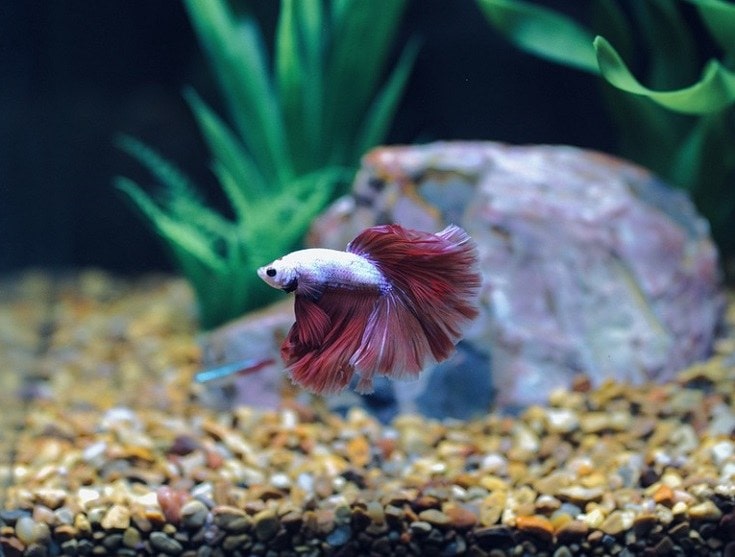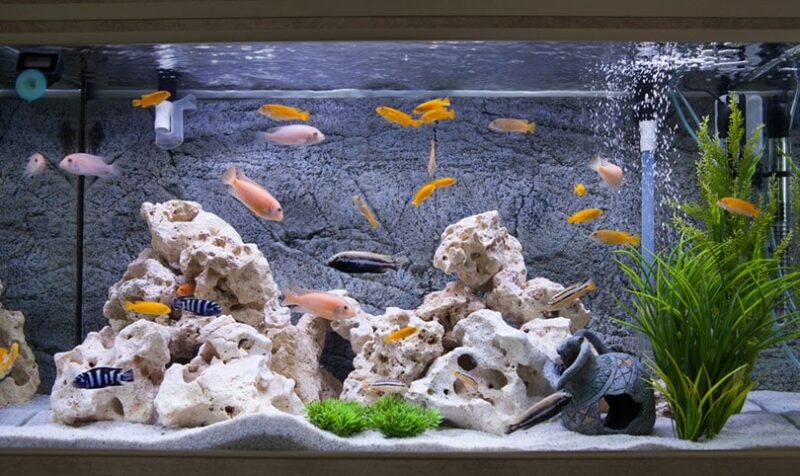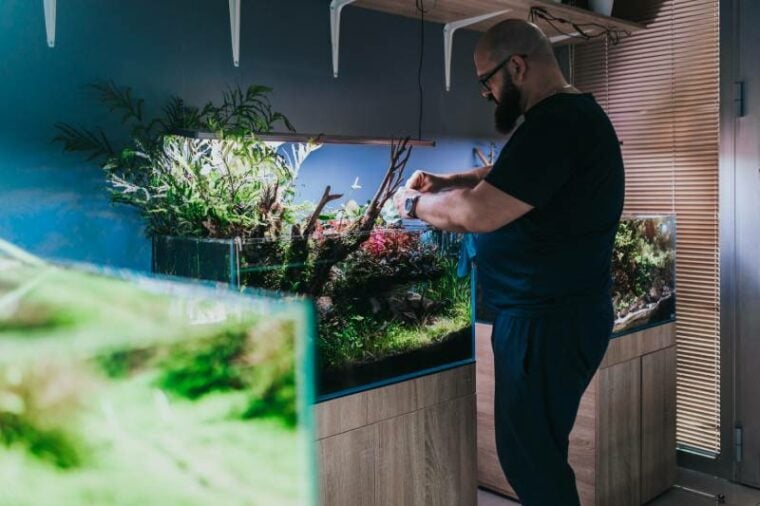
Compared to dogs and cats, fish may seem like the ideal choice for people who want a pet but don’t want to spend much time caring for one. Depending on the species, fish may need more specialized care or grow bigger than you anticipated. Maybe you got your child a fish, but now they’re more interested in video games and aren’t caring for their pet.
Whatever the reason, if you find yourself with an unwanted fish, we’re here to help! In this article, you’ll find four important steps detailing what to do with an unwanted fish, including what not to do.
Before You Begin
First, make sure there’s no way you can keep your fish. Can another family member assume the responsibility of caring for the fish? Do you have room for a bigger tank somewhere in your house? Maybe there’s a local group of fish keepers that could help you find what you need cheaply. If you’ve already explored all your options and know you can’t keep your fish, keep reading to find out what to do.
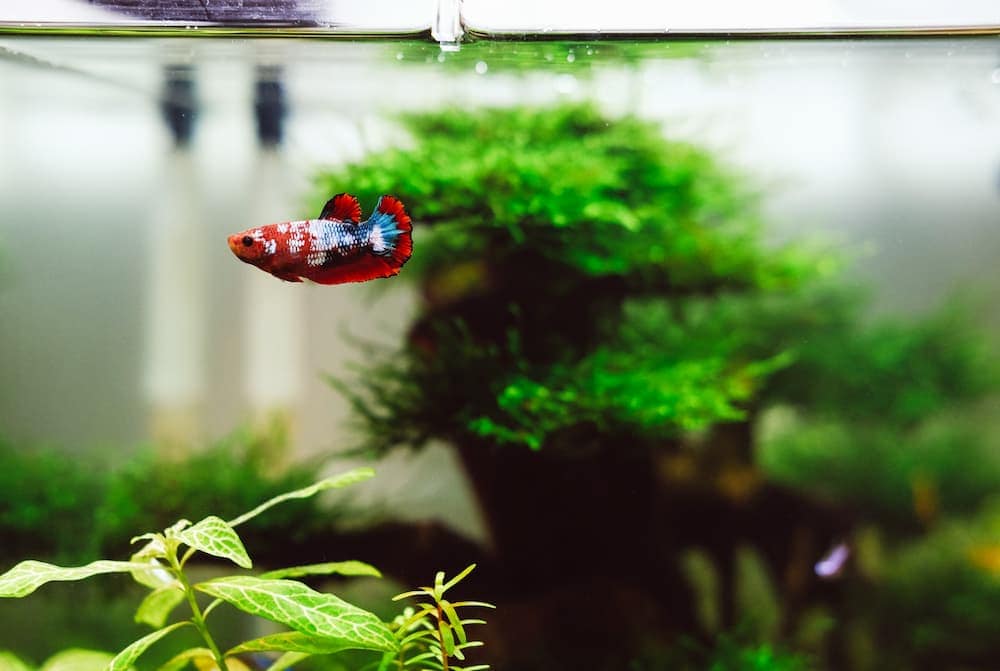
What to Do with an Unwanted Fish
1. Don’t Release the Fish into the Wild
We will start with what not to do with your unwanted fish because it seems like the easiest and most humane solution to most people. Although it may seem like a good idea, you should never release a pet fish into the wild. Unless it happens to be native to your area, pet fish may not be able to tolerate living in your local waterways.
If the non-native pet fish do thrive in the wild, they can harm native fish species. Invasive, non-native species may contaminate the water, destroy local plants, and compete with native fish for food sources. The U.S. Fish and Wildlife Services estimates that invasive species, including former pet fish and exotics, cause about $120 billion in damage to the country each year.
2. Give Your Fish to a New Owner
Rehoming your fish is a good solution if you can’t take care of them anymore. If no one in your immediate circle of friends wants the fish, try contacting local exotic veterinarians or aquarium hobbyist groups in the area for help. You could also see if there are rescue groups for fish in your area or if your local humane society accepts pet fish.

3. Sell or Trade Your Fish to a Pet Store
Another option for unwanted fish is to see if a local pet store will buy them from you or allow you to trade them for a smaller pet. Try the store where you originally purchased your fish first. If you trade for a new fish, ensure you know how big it will grow and how much care it will need first.
4. Donate Your Fish
If you can’t find a private owner for your fish, see if there’s somewhere local for you to donate it instead. You can check if a local aquarium or zoo will take the fish. One nature center in Texas keeps a pond devoted to housing unwanted pet fish.
You could also give your fish to a school, museum, or other educational institution. Maybe your doctor or dentist has an office tank that could use a new inhabitant. If you can’t sell or trade your fish to a pet store, see if they will take it for free.

Conclusion
Even the most prepared and dedicated pet owner can’t control every circumstance. Part of being a responsible owner is dealing with your unwanted fish in the most humane way possible without harming the local environment. The steps outlined in this article can help, but you can also contact your veterinarian for suggestions.
Featured Image Credit: hedgehog94, Shutterstock




